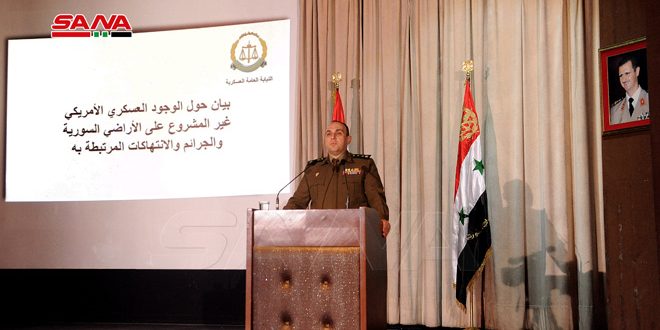The Syrian Military Public Prosecution stressed Thursday that there is no legal justification for the U.S. presence in Syria, which can only be called an “occupation”, indicating that the recent events in Hassakeh are the implementation of a plan that aims to leave the country under U.S. occupation for the longest possible time.
The Military Public Prosecution representative said, in a statement on Thursday, that the U.S. did not receive the consent of the Syrian government and it is not in a state of legitimate self-defense, therefore it deviates from the text of the fourth paragraph of 2nd Article of the UN charter.
Read Also: Syria: We’ll Never Allow EU to Intervene in our Affairs
The U.S. occupation has provided sponsorship for the separatist scheme since its occupation of parts of the Syrian territories under the illegitimate so-called “International Coalition” through supporting the QSD (Syrian Democratic Forces, SDF, editor’s note) militia, that is linked with it, and providing it with equipment and weapons. Washington also helped these militias establish political entities as a substitution for the legitimate institutions of the Syrian state.The U.S. has ignored ISIS and its movements in Syria.
Last June, the Military Public Prosecution presented evidence that allows making substantiated accusations against the U.S. on preparing and carrying out a terrorist aggression in Syria.
This article was edited by The Syrian Observer. The Syrian Observer has not verified the content of this story. Responsibility for the information and views set out in this article lies entirely with the author.


